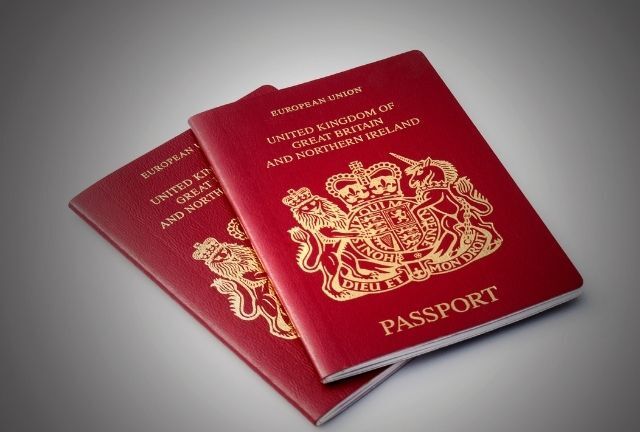Dubai Court of Appeal Sets Aside a Limitation of Liability Clause for Not Being Conspicuous Enough
09 May 2018
By Samer Abou Said
, Counsel, The Firm
Introduction
It has always been debatable whether limitation of liability clauses are enforceable in the UAE. This debate has arisen due to Article 390 of the UAE Civil Transactions Code, which is generally applicable to transactions, whether civil or commercial, regardless of their nature unless specific provisions apply otherwise. Article 390 provides that:
“(1) The contracting parties may fix the amount of compensation in advance by making a provision therefor in the contract or in a subsequent agreement, subject to the provisions of the law.
(2) The judge may in all cases, upon the application of either of the parties, vary such agreement so as to make the compensation equal to the loss, and any agreement to the contrary shall be void.”
It is understood that this article grants the judge a discretionary power to determine the compensation for breach of contract to which a party is entitled, irrespective of the presence of an agreement between the parties, such as a delay damages clause or liquidated damages clause or any other named clause with similar effect. It follows that if actual damages are greater or less than the capped liability, the judge may increase or decrease the amount of compensation, as applicable.
The benefit of having a liquidated damages clause may be questionable if the judge can vary it. In this respect, the added value of inserting such a clause is that it would be considered a presumption by the judge that the compensation amount agreed in the clause is equivalent to actual damages and would serve as guidance – the party claiming the damages would not have to quantify the damages; rather, it would only have to establish the breach of contract and the presence of the clause. Consequently the defendant, who would try to set the clause aside, carries the onus of proving that the fixed amount does not match actual damages.
Conditions for the Validity of Exemption or Limitation of Liability Clauses
Notwithstanding Article 390 mentioned above, with few exceptions, UAE law does not provide specific requirements for the validity of exemption and limitation of liability clauses (in contrast to laws in other jurisdictions, such as the Unfair Contract Terms Act 1977 in the UK). However, UAE law does provide for certain circumstances in which exemption or limitation of liability clauses are enforceable. By way of 2 example, UAE law allows such clauses in insurance and carriage contracts, subject to certain requirements.
Limitation of Liability in Carriage Contracts
Limitation of liability in carriage contracts is regulated under the UAE Commercial Transactions Code (“Commercial Code”). The provisions of the Commercial Code take precedence over the application of Article 390 mentioned above. The Commercial Code allows unequivocally for limitation of liability clauses in carriage contracts, under Articles 310 and 311. Those two articles provide for several conditions for the limitation of liability clauses to be valid and enforceable as follows:
o The agreed compensation must not be “fictitious” and remain subject to court determination if there is a conflict between the parties.
o Damages must be real and established. If the sender cannot establish that it incurred damages, it shall not be allowed to rely solely on the agreed compensation clause.
o The judge might choose to reduce the compensation for damages if the value is less than that agreed between the parties; however, he cannot increase it unless there has been gross negligence or fraud.
o The limitation of liability clause should be in writing, clear and conspicuous.
Court of Appeal Sets Aside Limitation of Liability Clause for not Being
Conspicuous
In a recent case before the Dubai Court of First Instance (“CFI”), 1410/2016 Commercial Single Judge, a carrier lost a shipment that contained the original copy of a client cheque that the client had handed over to a bank for collection. On its reverse side, the waybill contained a clause limiting the carrier’s liability to the sender to USD 25 per shipment unless the content was previously declared, in which case it would be subject to additional costs.
In rejecting the carrier’s claim that its liability was limited to USD 25, the CFI ruled that the limitation of liability clause was invalid since it was “written in English, in letters that can hardly be seen by the eye and in an inconspicuous way”, in contravention of Article 311 of the Commercial Code, and ordered the carrier to pay the full value of the lost cheque to the client.
This judgment was confirmed by the Court of Appeal in its hearing on 18 April 2017. The Judgment was not appealed to the court of cassation because the value of the claim does not exceed AED 200,000.
Exemption Clauses in Insurance Contracts
Article 1028 of the UAE Civil Code stipulates the conditions for the validity of exemption clauses in insurance contracts. Amongst other requirements, a clause should be conspicuous if it relates to any circumstance leading to the avoidance of the contract or the lapse of the right of the insured.
By way of example, the Dubai Court of Cassation, in case No. 242/2011 Commercial, dismissed a case filed by an insured to claim insurance coverage due to losses arising due to theft of a mobile crane because the insured failed to notify the insurer within 14 days of the incident leading to the loss. In upholding the validity of the clause, the court reasoned that the clause was conspicuous enough and meant to protect the right of the insurer to sue the person responsible for the incident. The court considered that notifying the police alone is not enough and cannot replace the notification of the insurer.
Conclusion
The above demonstrates that avoidance of risk through limitation of liability clauses can be achieved subject to compliance with the provisions of the law as interpreted by the UAE courts. Carriers and the insured should review their contracts accordingly and establish procedures to prevent being caught unprepared.
“Contents of this article are for general informational purposes only. It is not intended as professional counsel and should not be used as such.”
















